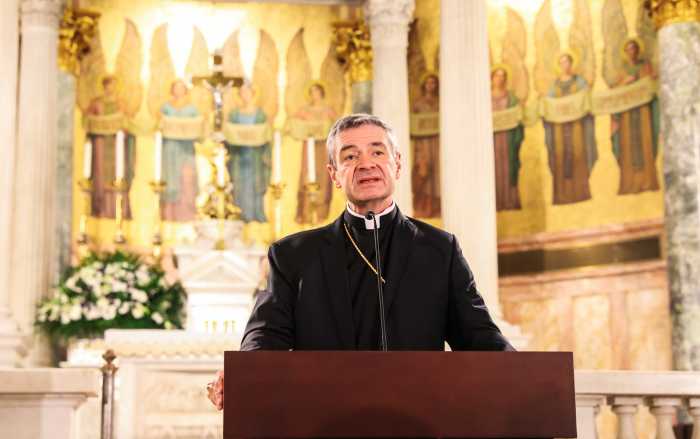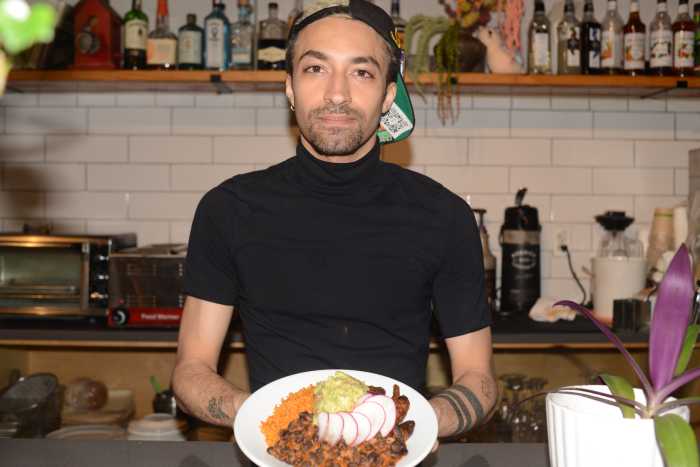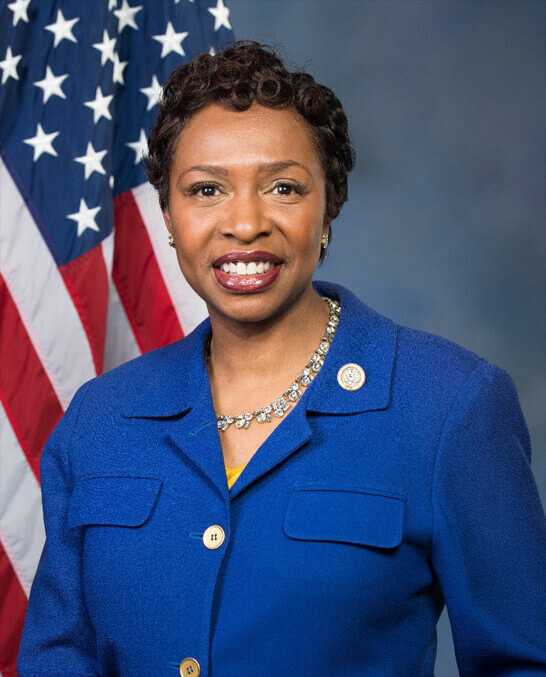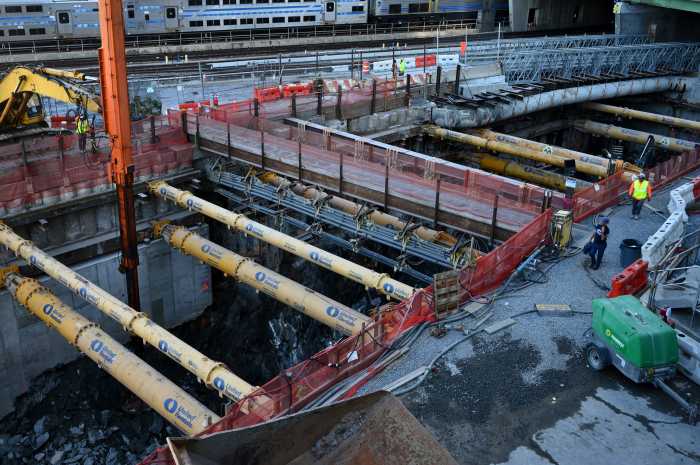I kept reminding myself to be grateful. We had gas to cook with, and a dry building, running water. I was freaked out anyway. No light, no phone, no Internet, no heat, no pharmacies. The hospitals were evacuated one by one, and my girlfriend was just getting better after being really sick. In an emergency, I'd have to walk three or four blocks to a pay phone or the little cell hotspot in front of Russ & Daughters, one of the few places open. During the day, anyway.
At night, we had to cope with the dark. In the city, the absence of light is somehow obscene. It's a sign of abandonment or poverty that reminded us of the bad old days when the neighborhood was all burnt-out buildings and drugs and illegal clubs.
Even in daytime, you had to use a flashlight to get upstairs and get the key in the lock. At night, you'd light a couple of candles. For a moment, the flame would be so beautiful. But then the dark would win out, limiting the sphere of each candle to a small, ineffective round. Shapes and colors dissolved. I felt like I'd been slipped a tab of acid. There were no hard surfaces except the ones you cracked your knees on.
We sat on the couch and listened to the news on the spare radio our upstairs neighbor lent us. I'd rage whenever the broadcaster said, “Check our website for more information.” If I could access the Internet, you fucker, I'd have power and connectivity, and wouldn't need the goddam info. Or the radio, for that matter.
When we got tired of living in a black and white movie, we'd go to sleep, shedding clothes that were invisible until morning. There was a lamp by the bed. After a couple of days, it started to seemed quaint. We should have stuffed it in the closet, along with our computers and cell phones, the refrigerator that we used as a cupboard in case the mice invaded from downstairs.
We'd entered a different century, maybe earlier, maybe later depending on your dystopian point of view. Or we'd shifted sideways to a part of the world where electricity is a whim if it exists at all. You certainly don't have jobs dependent on it. Or mass transit. You also don't build homes so near the shore. Especially not with the same old vulnerable designs you'd have inland. Or even uptown.
If we looked out the windows in back, there was a strange rosy dawn on the northern horizon. It was the illuminated city we weren't a part of any more. People that went up above 39th Street would come back saying how weird it was there. Life continuing like we didn't exist at all. We looked for metaphors of border crossings, inequality. Passing from East to West Berlin. From Mexico to the United States. North Korea to the South.
Halloween, I had to get my girlfriend to the lab uptown and to our heroic doctor who actually kept office hours. The buses were too packed to get on. No taxis stopped. We had to go back home. I was prepared to walk all the way up to 40th to call around for help, but a neighbor told me about that Russ & Daughters hotspot and I used the last of my charge to call my friend Adriana who drove all the way in from Queens, waiting two hours on the 59th Street Bridge to ferry us uptown where the little kids were all dressed up going door to door. As dusk set in, the lights came up just like always. Bizarre.
I was back uptown Thursday, waiting 45 minutes for a bus that had space. And after checking email and recharging the phone at the public library in Midtown (thank you NYPL), I grabbed a slice and overheard a guy proclaiming his refugee status and showing off his growing beard. When I asked where he lived, he looked around shiftily and said, “39th Street,” and when I made a loud raspberry noise, slurping spittle everywhere, he declared, “But on the south side. And we don't have water.”
He turned his back on me and kept regaling his listener about all his difficulties being a whole block away from power. The guy went on to talk about how he'd gotten on a bike and zipped downtown to have a look at the darkness: “It was really incredible.” Probably by now he's been to Red Hook or Coney Island, savoring the misery. I didn't kill the two of them.
On the way back home, the buses were too full to get on and I had to walk the 40 blocks back downtown with the light fading. After dark, I lit the flashlight at every black intersection, signaling my existence to indifferent cars and more biking tourists, who kept shouting, “I can't see a thing. I can't see a thing.”





























